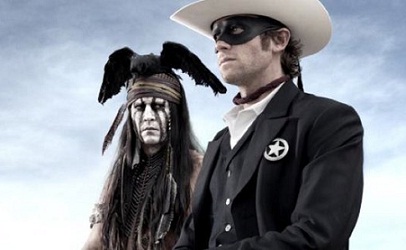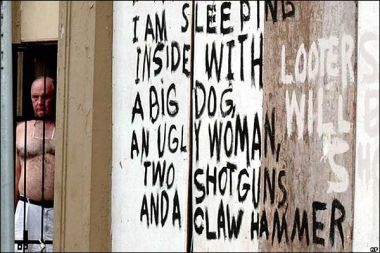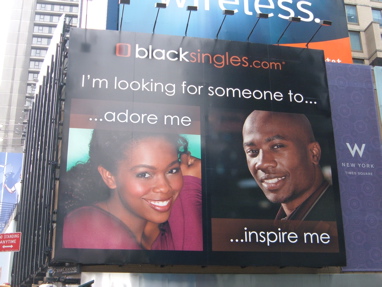Update [3/7/05]: Roger Ebert responded to this post.
The reviews of Diary of a Mad Black Woman, the recent very successful movie by popular actor/writer/director/performance artist Tyler Perry, have not been good. In the New York Times, Stephen Holden writes, "This movie is so oblivious to genre that it occupies its own special stylistic niche, if you can imagine such a thing as a romantic revenge farce. As the story of a cruelly abandoned wife’s re-ascendance zigzags from soap opera to slapstick to church sermon and back, it goes from A to Z on the all-things-to-all-people meter: Cinderella meets Amos 'n' Andy in Sunday school, so to speak."
Michael O'Sullivan from the Washington Post writes, "To review Diary of a Mad Black Woman is really to review three different movies, none of which is very good... Sure, I laughed. Yes, I cried. But mostly I just wanted to throw up."
O'Sullivan also notes that his viewpoint was apparently not shared by the largely female and black test audience that watched the movie along with him. This audience "whooped and hollered in approval of every bathetic plot turn, growing silent only when I was inwardly howling in outrage at lines like 'I don't even know where to begin to pick up the pieces of my life.'"
Which brings us to Roger Ebert, who last week wrote a one-star review of this movie, then wrote a follow-up piece about the enormous reader response he received about his negative review. Like the other reviewers, Ebert's main problem with the movie is its stylistic inconsistency, veering from a serious drama about a woman whose husband leaves her for another woman and has to put her life back together, to a maniacal, goofball farce in which Grandma Madea (a recurring character in Tyler Perry's theatrical works, whom he plays in drag) takes a chainsaw to the husband's house and waves guns around and is generally vulgar and deranged and totally out of place in the movie. Ebert writes, "She seems like an invasion from another movie. A very bad another movie. I've been reviewing movies for a long time, and I can't think of one that more dramatically shoots itself in the foot."
Well! Ebert's readers, particularly his black female readers, didn't like that one bit. Readers wrote to Ebert in response to this one review more than all the reader responses he received for his reviews for Fahrenheit 9/11 and The Passion of the the Christ put together. In his follow-up article about these responses, he writes, "The e-mails I’ve received are direct: As a white man, I’m told, I am clueless to understand that strong older women, who have had to be tough to survive in hard times, are familiar in all African-American families, and do not conform to the genteel manners of the art-house crowd. More than one writer, especially on the Yahoo message boards, calls me and other critics of the film racist."
Are all these film critics racist just because they don't like Diary of a Mad Black Woman? What if a black person doesn't like it? Other responders to the Ebert review who aren't quite so careless with the word "racist", and the film's producer himself, who Ebert spoke with at an Ebony magazine party recently, say that the movie is a mix of styles, and that the crazy Grandma Madea character is supposed to be over the top, and the movie is supposed to defy conventions. It's more of a variety show than a regular movie. Ultimately, differing opinions about this movie seem to be caused by different expectations of consistent style and tone in movies, and different views on what is funny. It's not really about race. I would suggest that when most critics don't like a movie that ends up being very successful at the box office, this is more a demonstration of the divide between critics and the general public of moviegoers, most of whom don't much care if a movie makes any sense or not, as long as it makes them laugh. Film critics and mainstream audiences evaluate movies based on different criteria, but that doesn't automatically make critics racist.
Eleanor Ringel Gillespie, the reviewer for the Atlanta Journal-Constitution (the movie takes place in Atlanta) seems to understand this divide, and anticipates in her review (login req'd) that some people will hate the chaotic style of the movie and some won't mind it, but she doesn't make assumptions about a viewer's race based on if they like the movie or not. She writes, "Just as Hong Kong martial arts movies operate under their own set of rules and have their own core audience, so does Diary of a Mad Black Woman, Tyler Perry's adaptation of his phenomenally successful play of the same name. Perry has made a fortune ($70 million according to Newsweek) writing for what he himself has called the chitlin' circuit, a genre that is often also referred to as gospel stage plays. For fans of Perry, Diary is precisely what they expect and will enjoy -- a high-minded melodrama joined at the hip with low-comedy, borderline vulgar shenanigans. Those unfamiliar with Perry's work may find the movie's over-the-top style and abrupt transitions from, say, a shooting in a courtroom that leaves one character paralyzed to a broadly played scene about smoking marijuana, well, jarring."
Most of Tyler Perry's fans are likely black people, and many white movie audiences are probably unfamiliar with his work and style. And movies that contain a lot of references that are specific to one culture can either be good movies that even audiences who are not from that culture can appreciate, or they can be terrible. There are many hugely popular styles of movies that mainstream audiences often don't like or understand, such as the Bollywood musical or the Hong Kong martial arts movie. But not liking a poorly-executed example of one of these culturally-specific movies doesn't equal racism.






